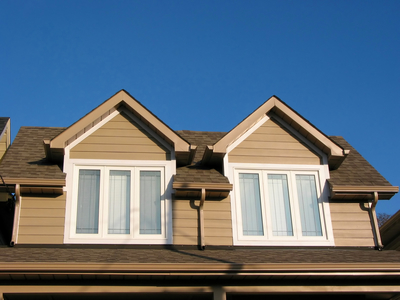Orange County
Welcome to our Orange County Roofing Company Blog. Our goal is to not only offer you the highest quality roofing solutions in Orange County, but also to educate you on best practices, offer roofing contractor tips and inside secrets that only a professional roofer would know. We hope you find this information helpful and invite you to comment and ask questions.
Your Roof’s Hidden Protector
During the installation of an asphalt roof, an Orange County roofing company will take preliminary steps to ensure success. One step might be covering the top of your home with something called roll roofing. Rest assured, the name refers to the form in which it arrives from the factory -- not its behavior. Essentially, it is a rolled-up mat, similar to a carpet prior to installation. The primary function of this mat is to add an extra layer of protection to your rooftop. Variety typifies this protective layer. In fact, an Orange County roofer has the option to install one of three kinds.
Your Orange County roofing company, for instance, can protect your home with smooth surfaced roll roofing. Coated with asphalt, its main function is to seal protruding areas, as well as eaves and valleys. A second type, saturated felt roll roofing, is the professional’s choice when laying down a protective layer between the roof deck and asphalt shingles.
Mineral surfaced roll roofing probably will not be used for the typical Orange County residence. That’s because the material generally is employed as a protective layer for special structures. Coated with mineral granules, this type of roll roofing often finds itself on sheds, barns, storage buildings, and the like.
No matter where you live, roll roofing adds an extra layer of protection to your home. But be sure to ask a professional about your options. If, for instance, you reside in Dana Point, consult a Dana Point roofer on the topic of roll roofing. You’ll find the information both enlightening and rewarding.
If you have questions about roll roofing, be sure to reach out to Luke Roofing. A long-established Orange County roofer, we provide prompt, reliable expertise for every residential roofing and commercial roofing need. No matter where you live in OC, you can count on Luke Roofing for the most efficient, reliable roofing solutions.
©
2025
Copyright Luke Roofing


Comments 4
My home was built in the 60s. Come to find out that they didn't use any plywood sheathing. Does this roll roofing take the place of sheathing? If not, is it installed on top of sheathing?
Looking through the attic of my 1960's home it seems there is no roll sheets under the actual shake roofs. Will this cost more to replace?
Is the flat roll roof protector you're talking about really necessary. Our house is a 1950's build (extremely old) and I'm not sure that it was ever installed.
Roofing felt is a protective layer installed between the roof deck and shingles (or other roof types). It's actually required by most city codes now and has been used for years to protect from leaks. It also adds additional protection from extreme temperatures and ice issues. It also might be necessary to meet Class A fire ratings. So yes, it's necessary IMHO.